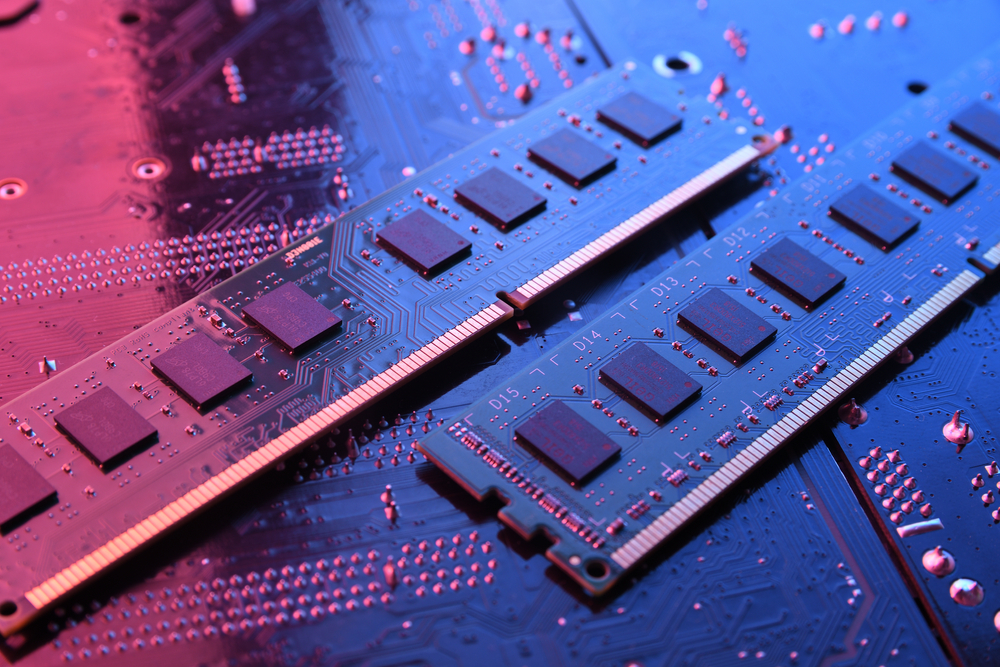Shenzhen Longsys Electronics Co. Ltd, a Chinese NAND flash memory manufacturer, has demonstrated the power of its DDR5-6400 memory with one of Intel’s Alder Lake-S processors. The company’s results show that DDR5 will be an absolute delight for next-generation hardware.
Longsys currently has two DDR5-6400 memory modules in development. The 16GB variant follows a single-rank design, while the 32GB variant conforms to a dual-rank design. Both memory modules feature an eight-layer PCB, CAS Latency (CL) of 40, and a 1.1V DRAM voltage. Longsys’ offerings aren’t even the pinnacle of what DDR5 has to offer, though. DDR5 will eventually arrive with data rates up to DDR5-8400 and capacities that scale up to 128GB per module.
Longsys demonstrated the company’s DDR5-6400 (ES1) memory module in its 32GB version with a CL40. For comparison, JEDEC’s “A” specification for DDR4-6400 is rated for CL46.
There aren’t many processors that support DDR5 memory, and we haven’t heard anything conclusive from the AMD camp. Alder Lake is the closest processor on the horizon that will support DDR5. In fact, Longsys’ test platform is based on an Alder Lake-S chip with eight cores that operate with an 800 MHz base clock speed.
DDR5-6400 Benchmarks
It’s uncertain if Longsys compared its DDR5-6400 or DDR5-4800 memory module to one of the brand’s DDR4 memory modules. The company refers to DDR5-6400 in its results, but the BIOS screenshots show DDR5-4800. The data rate of the DDR4 memory is unknown as well. But judging by the CL22 value, the DDR4 memory module most likely conforms to the DDR4-3200 standard. In any event, we’ve reached out to Longsys for clarification.
| Longsys DDR4 32GB C22 | Longsys DDR5 32GB C40 | Difference | |
|---|---|---|---|
| AIDA64 Read | 25,770 | 35,844 | 39% |
| AIDA64 Write | 23,944 | 32,613 | 36% |
| AIDA64 Copy | 25,849 | 28,833 | 12% |
| AIDA64 Latency | 56.8 | 112.1 | 97% |
| Master Lu Benchmark | 91,575 | 193,684 | 112% |
According to Longsys’ provided RAM benchmarks, the DDR5 memory module outperformed the DDR4 memory module in AIDA64’s read, write and copy tests. The performance gains came down to 39%, 36%, and 12%, respectively. However, the DDR5 memory module did show a 97% higher latency than the DDR4 offering, though.
Longsys also shared the memory result for the Master Lu benchmark, which is a pretty popular benchmark in China. The DDR4 memory module scored 91,575 points, while the DDR5 memory module put up a score of 193,684 points. Synthetic benchmarks don’t tell the whole story, but the DDR5 memory module delivered up to 112% better performance in Master Lu.
Image 1 of 4
Image 2 of 4
Image 3 of 4
Image 4 of 4
Intel’s 12th Generation Alder Lake-S processors may debut in late 2021 or early 2022, therefore, it shouldn’t be long before consumers get a first taste of the type of performance that DDR5 can supply.
